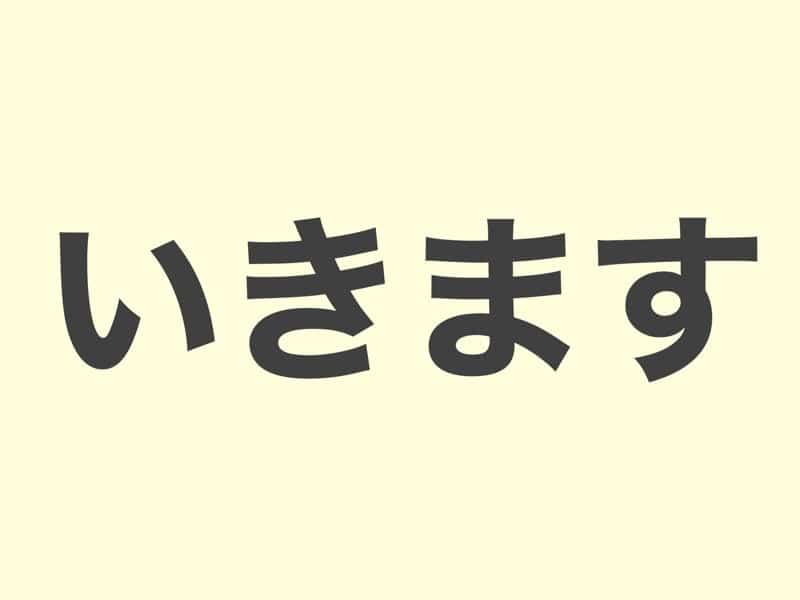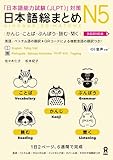In Japanese, expressing your intentions or plans is straightforward and essential for effective communication. One common phrase you’ll use frequently is “行きます” (ikimasu), meaning “to go.” In this guide, we’ll explore the phrase “I’m going” in various contexts, along with pronunciation tips and examples to enhance your Japanese speaking skills.
JLPT Textbook Recommendations
Time-related vocabulary
- 昨日(きのう, kinō) – yesterday
- 今日(きょう, kyō) – today
- 明日(あした, ashita) – tomorrow
- 先週(せんしゅう, senshū) – last week
- 今週(こんしゅう, konshū) – this week
- 来週(らいしゅう, raishū) – next week
- 先月(せんげつ, sengetsu) – last month
- 今月(こんげつ, kongetsu) – this month
- 来月(らいげつ, raigetsu) – next month
- 去年(きょねん, kyonen) – last year
- 今年(ことし, kotoshi) – this year
- 来年(らいねん, rainen) – next year
Going in Japanese
| Present | Present negative | Past | Past negative | |
| To go | いきます (iki masu) | いきません (iki masen) | いきました (iki mashita) | いきませんでした (iki masen deshita) |
“Going to” can be expressed as either 〜にいきます (ni ikimasu) or 〜へいきます (e ikimasu). You can use either に or へ; both are correct and interchangeable.
| Where are you going? | どこへいきますか。 | doko e iki masuka. |
| I’m going to (place). | (place) へいきます。 | (place) e iki masu. |
| I’m going to (place) tomorrow. | あした (place) へいきます。 | ashita (place) e iki masu. |
| I don’t go anywhere. | どこもいきません。 | dokomo iki masen. |
Place Names in Japanese
Example sentences: しごとへいきます (shigoto e ikimasu) – I go to work / I will go to work.
| Post office | 郵便局(ゆうびんきょく) | yūbinkyoku |
| Bank | 銀行(ぎんこう) | ginkō |
| Hospital | 病院(びょういん) | byōin |
| Park | 公園(こうえん) | kōen |
| House / Place you live | うち | uchi |
| Japan・Trip | 日本・旅行(にほん・りょこう) | nihon・ryokō |
| Airport | 空港(くうこう) | kūkō |
| School | 学校(がっこう) | gakkō |
| Office・Job (workplace) | 会社・仕事(かいしゃ・しごと) | kaisha・shigoto |
Some of them are derived from English names.
| Supermarket・Convenience store | スーパー・コンビニ | sūpā・konbini |
| Department store・Mall | デパート・モール | depāto・mōru |
| Hotel | ホテル | hoteru |
| Cafe・Restaurant | カフェ・レストラン | kafe・resutoran |
| Gym・Concert | ジム・コンサート | jimu・konsāto |
Vehicle Names in Japanese
- 電車 (でんしゃ, densha) – train
- 地下鉄 (ちかてつ, chikatetsu) – subway
- バス (ばす, basu) – bus
- 船 (ふね, fune) – boat
- 飛行機 (ひこうき, hikōki) – airplane
- 車 (くるま, kuruma) – car
- タクシー (たくしー, takushī) – taxi
- バイク (ばいく, baiku) – motorcycle
- 自転車 (じてんしゃ, jitensha) – bicycle
- ★歩いて (あるいて, aruite) – by foot (walking)
| How do you go there? | なんでいきますか。 | nan de iki masuka. |
| How do you go to (place)? | なんで (place) へいきますか。 | nan de (place) e iki masuka. |
| I’m going by (vehicle). | (vehicle) でいきます。 | (vehicle) de iki masu. |
| I’m going on foot. | あるいていきます。 | aruite iki masu. |
| I’m going to (place) by (vehicle). | (vehicle) で (place) へいきます。 | (vehicle) de (place) e iki masu. |
Example sentences: でんしゃでしごとへいきます (densha de shigoto e ikimasu) – I go to work by train.
Person Names in Japanese
- 友達(ともだち, tomodachi) – Friend
- 家族(かぞく, kazoku) – Family
- パートナー(pātonā) – Partner
- 夫(おっと, otto) – Husband
- 妻(つま, tsuma) – Wife
- 彼氏(かれし, kareshi) – Boyfriend
- 彼女(かのじょ, kanojo) – Grilfriend
- クラスメート(kurasumēto) – Classmate
- ルームメイト(rūmumeito) – Roommate
- 同僚(どうりょう, dōryō) – Coworker
- 一人で(ひとりで, hitoride) – By myself
| Who are you going with? | だれといきますか。 | dare to iki masuka. |
| I’m going with (someone). | (someone) といきます。 | (someone) to iki masu. |
| I’m going by myself. | ひとりでいきます。 | hitori de iki masu. |
| I’m going to (place) with (someone). | (someone) と (place) へいきます。 | (someone) to (place) e iki masu. |
Example sentences: ひとりででんしゃでしごとへいきます (hitori de densha de shigoto e ikimasu) – I go to work by train by myself.




コメント